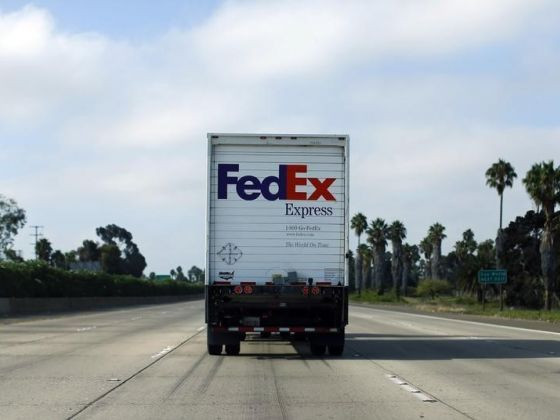Transportation Bill: Road Safety Advocates Slam Lawmakers For Keeping Provisions Allowing Heavier Trucks, Longer Trucker Hours

Road safety advocates expressed outrage Wednesday after House Republicans allowed controversial trucking industry-backed measures to remain tucked inside a $55 billion transportation spending bill that's making its way through Congress. A committee that also approved cutting $260 million from Amtrak’s budget hours after a fatal train derailment in Pennsylvania decided to let stand legislative efforts to allow truckers to haul larger loads and work longer hours than currently permitted.
“None of these provisions would stand public scrutiny,” said Jackie Gillan, president of Advocates for Highway and Auto Safety. “These are deals being cut in the back room with all the corporate interests represented, but not the public. They lock us out and don’t give us a key.”
The House Committee on Appropriations passed the bill 30-21 along party lines without altering the provisions supported by a multimillion dollar lobbying effort by pushed by freight carriers, including FedEx Corp., and the American Trucking Associations industry trade group. The bill could still be changed when the House votes on in the coming weeks, and the Senate could also still remove these provisions in its version.
The provisions would allow trucks to haul two 33-foot trailers, up from a current 28-foot limit, and increase their maximum weight loads. It would also scrap a rule implemented in 2013 that lowered the “average work week for truck drivers” to 70 hours, from 82 hours. The measures also de-fund future efforts to study whether liability insurance rates -- which have been frozen since 1980 -- should be increased to adjust for the change in the dollar’s spending power over the past 34 years. This would keep costs down for freight haulers.
The American Trucking Associations group says increasing weight loads and hours that truckers can work means fewer trucks on the roads and reduces fuel consumption. “There’s no safety issue,” Dave Osiecki, executive vice president of the ATA, told Bloomberg News. “There’s an environmental benefit and a fuel-economy benefit.”
Lawmakers who have benefitted from trucking-industry campaign contributions are led by Reps. Bill Schuster (R-Pa.) and John Boehner (R-Ohio) and Sen. Mitch McConnell (R-Ky.), according to the Center for Responsive Politics. The trucking industry spent nearly $10 million lobbying Congress last year and contributed nearly $8 million to candidates and political action committees. Lobbying money from the industry is weighed heavily in favor of Republicans, who control the House and Senate.
But the public is largely opposed to these provisions, according to a poll conducted by Gillan’s group last year. And the rail industry -- which directly competes with truckers -- also opposes the measure to increase truck loads.
Last week, a bill was introduced in Illinois to oppose the measure to increase truck size and weight limits, citing concerns over safety and the damage to roads caused by heavier haulers. And in April the Mississippi Transportation Commission urged Sen. Thad Cochran, R-Miss., to oppose the measures that would force the state to allow the longer and heavier double-trailer trucks.
“We face an infrastructure crisis as it stands now, with 3,565 structurally deficient or functionally obsolete bridges in Mississippi-over 20 percent of all bridges statewide,” said the letter signed by Dick Hall, chairman of the Mississippi Transportation Commission.
According to the U.S. National Highway Traffic Safety Administration, fatalities from collisions involving big rigs increased from 3,380 in 2009 to 3,964 in 2013, a 17 percent increase. Injuries increased 28 percent to about 95,000 in the same period of time.
The issue of exhausted truckers rose to national prominence last year after a driver working for Walmart plowed into a vehicle on the New Jersey Turnpike carrying “30 Rock” star Tracy Morgan, comedian Jimmy McNair and others. McNair was killed and Morgan severely injured. Walmart paid $10 million to McNair’s children after it was revealed the driver had not slept for 24 hours.
Note: Story was corrected to say a bill was introduced last week in Illinois to oppose the measure to increase truck size and weight limits. The original version of the story said the bill was introduced in Indiana.
© Copyright IBTimes 2024. All rights reserved.






















